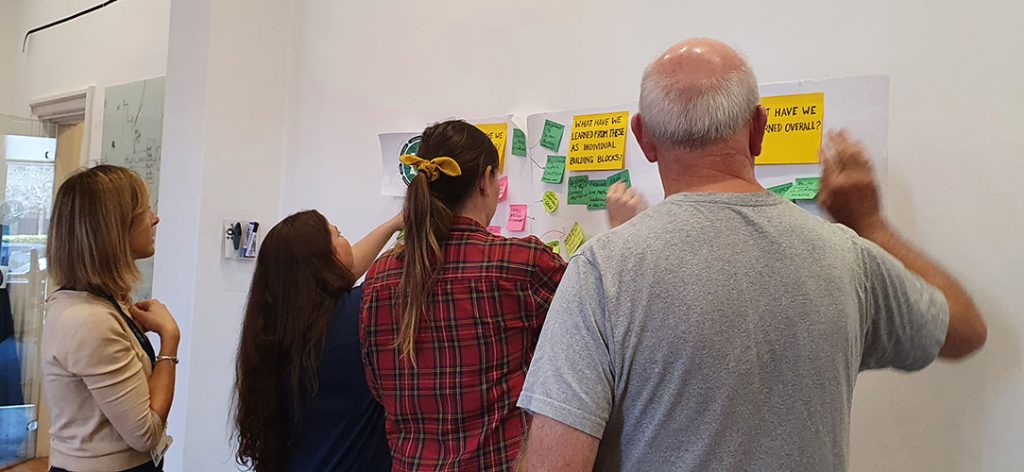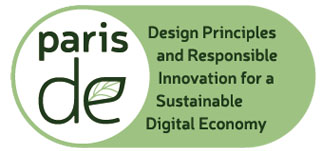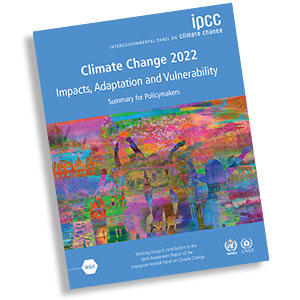The whole PARIS-DE team met in Oxford on the 21st and 22nd of September to take stock of the different activities developed in the project, celebrate and plan the work for the year ahead. Because of remote working it was the first time the whole group was together physically and it proved to be a great opportunity to exchange ideas and collaborate.
On the first of the two days of the meeting, we visited the Oxford Robotics Institute. We watched demonstrations of autonomous vehicles, robots and 3D printing and heard about the research being carried out in the institute. We also had a talk from Prof. Mike Berners-Lee on the intricacies, and difficulties, of greenhouse gases (GHG) emissions accounting. One of the studies underway in the project right now is concerned with analysing different carbon calculator tools used in ICT to gain insight on the how these calculations are being conducted, including the methodologies and assumptions that determine what is and isn’t included and what sort of information they provide.
On the following day, a workshop brought us together to look back on our first year, reflecting on what we have learned through our different activities as a transdisciplinary team. The project so far has engaged with many stakeholders in various areas of Information and Communication Technology (ICT) in the academic, industry and government sectors. Interviews have been carried out with some of these experts and the insights gathered are being used to form an initial understanding of what a digital sustainability framework should incorporate.
During our first year we also organised an online workshop with around 20 specialists from various fields on rebound effects, which led to a collaboration amongst the team and the participants in the shape of a perspective paper. This and other two academic papers are now in development, and we hope will soon be published. We will share them on this website once this has taken place.
Looking forward to our second year, a new cycle on the project is starting that continues the process of co-designing the framework. This new phase focuses on case studies looking at specific fields and digital technologies. Work has now started on recruiting participants for a Natural Language Processing (NLP) case study. Further case studies are planned in areas such as video streaming, AI and robotics. For each case study, we will be conducting further interviews and organising co-design workshops, building on the insights and findings gathered in the different studies and stages of the project
If you would like to find out more or take part in our research, please get in touch.


